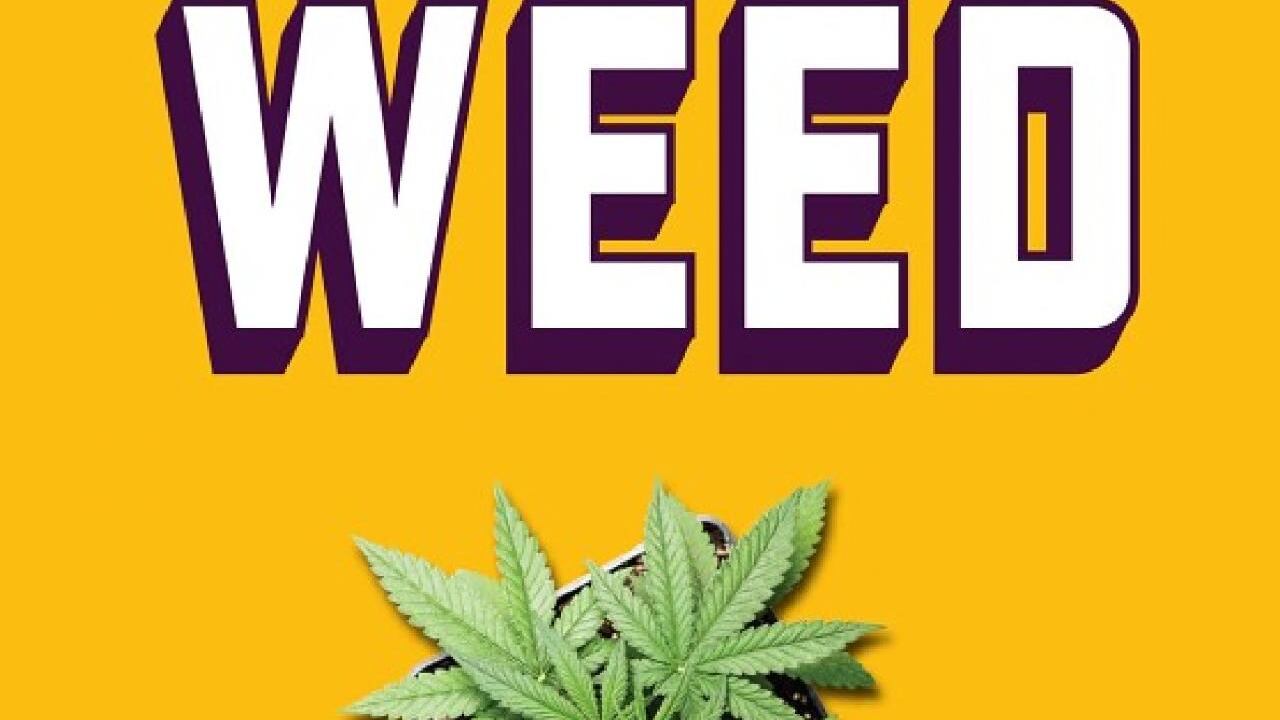Advocating for adult cannabis education has always been a hallmark of this column. Sure, Potlander features goofy gift guides; relatable, stoned reviews; and the occasional scientific breakdown, but each article is grounded by my reverence for cannabis as plant medicine, acknowledgement of the damage done by prohibition and the War on Drugs, and a prioritization of BIPOC voices in the industry.
The “quiet part out loud” is that this column is just as accessible to youths as it is to their parents, and since I encourage the normalization of adult cannabis use, it stands to reason that of course I champion author Caitlin Donohue’s newly published young-adult book Weed: Cannabis Culture in the Americas (Zest/Lerner Books, 184 pages, $18.99). Much more than a straightforward journalistic look at the history of cannabis in the Western Hemisphere, Weed is also deeply grounded by its reverence for cannabis as plant medicine and acknowledgment of the damage done by prohibition and the War on Drugs, and features more than a dozen interviews with diverse BIPOC voices shaped by, and shaping, the industry today.
Sound familiar?
Weed is Donohue’s second YA title. You may have encountered the Mexico City author’s work in High Times, Remezcla, Marie Claire or The San Francisco Bay Guardian (to name a few). Despite Donohue’s pedigree, she takes a distinct backseat in Weed, instead passing the mic to a new generation of rec users who often go unrecognized (i.e., y’all’s kids).
Younger readers are invited to understand cannabis from the point of view of both a nurse advocate and a 14-year-old patient for whom cannabis therapy relieved symptoms of cerebellar ataxia, the loss of muscle coordination.
The book also encourages reflection on the commitment made by Indigenous Cannabis Coalition executive director Mary Jane Oatman’s grandmother, who, even after her cannabis farm was raided and she was sent to prison, returned to cultivate the medicinal plant on the land she stewarded. Mary Jane would go on to launch iconic Tribal Hemp & Cannabis magazine, aka THC.
Weed further examines the War on Drugs through the very different perspectives of victims of the United States’ deadly and absurdly racist drug laws and a Mexican chanteuse whose ballads bloom on ranches where culture dictates that farmers cultivate without ever partaking.
On top of all that, American track and field sprinter Sha’Carri Richardson, who was suspended from competition for one month in 2021 by the U.S. Anti-Doping Agency for testing positive for THC, gets her due, and former NBA player Al Harrington unpacks the use of cannabis therapy in sports.
While Weed does get undeniably heavy, it’s all treated with a tenderness that makes it appropriate for younger readers (less ACAB, more “eww, colonialism”). In fact, as a cannabis-using parent, this book feels like it was written for anyone whose ability to raise a child is challenged by taboos around smoking weed. The conversations Weed encourages are necessary, even for non-users, and could lead to some remarkably digestible, bone-deep lessons.
When held up against the drug education programs Donohue and others in the DARE generation were subjected to in school, Weed debunks the scare tactics that conflate cannabis with opioids and amphetamines. The magic of the book is that it manages to disseminate all of this incredible information about the history and mystery of weed without spilling over into an implicit endorsement of underage, recreational THC consumption.
My 14-year-old play-nephew (my BFF’s son) recently began growing hemp. He was breaking it down into a salve to medicate my bestie’s chronic back pain. She gave the potion glowing reviews, and was not only enthusiastic about the relief it provided, but thrilled by her son’s aptitude for cultivation in the pursuit of healing.
Elder recreational stoners who cut their teeth on pot brownies from someone’s hesh cousin: Compare your first interaction with cannabis to my nephew’s, and cozy up to the idea that the next generation of stoners are going to know so much more about weed than we did at their age—but probably still not as much as our ancient ancestors did.
GO: Caitlin Donohue appears at Taborspace, 5441 SE Belmont St., 503-954-2610, taborspace.org, at 7 pm Wednesday, Sept. 20; Alder Commons, 4212 NE Prescott St., 503-893-9366, aldercommons.org, at 7 pm Thursday, Sept. 21; and Up Up Books, 1211 SE Stark St., 503-360-8994, upupbooks.com, at 6 pm Wednesday, Oct. 4. $5-$10 admission fee at Taborspace. All ages.

